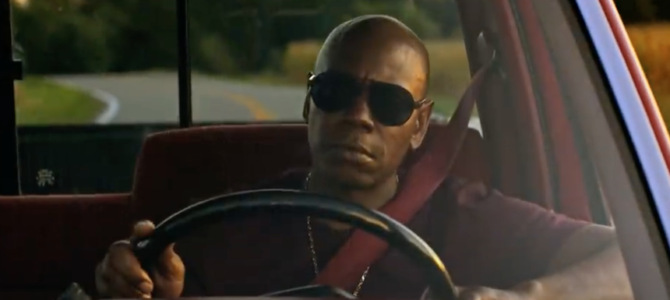Less than two months before her death, Joan Rivers told a photographer Michelle Obama was “a tranny.” Asked for comment by CNN, Rivers passed along a statement that read in part, “The most gorgeous women are transgender,” and “if you think that’s silly, wait to you see what I say about FDR and Eleanor.”
That was 2014. By the time Dave Chappelle started joking about Caitlyn Jenner on Netflix, Donald Trump was president and our cultural arbiters had tightened the boundaries on acceptable speech to the point comedians were suffocating. But Chappelle kept making the jokes and Netflix kept letting him.
“The Closer,” the final installment in Chappelle’s string of Netflix specials, solidifies his work for the streamer as the most important comedy of our time. Whether he’s pro-trans or anti-trans, Chappelle is pro-comedy. That’s a low bar, to be sure. But Chappelle’s particular genius is being both extremely provocative and extremely funny at the same time. It’s enough to make Hannah Gadsby look ridiculous.
Most heterodox comedy is low-profile, on niche podcasts and YouTube channels. Chappelle’s is on the most popular streaming platform, delivered by one of the world’s most popular comedians. What’s more, it’s as funny as it is subversive and smart. That’s been true of all his Netflix specials, and while some have been better than others, “The Closer” caps off his run poignantly.
The special is an extended rebuke of two pillars of contemporary leftism: first, that the costs of political incorrectness outweigh its benefits and second, that intersectionality means oppressed minorities are necessarily part of the same struggle. That isn’t exactly the definition Kimberlé Crenshaw originally outlined, but it’s come to be how the concept is interpreted and promoted.
“The Closer” is Chappelle’s mic drop on critics who’ve spun their wheels in his Netflix era attacking his hard-earned credentials as a legitimate champion of social justice. It’s an argument that white progressivism elevates other identities over race in a way that silences and downplays the black experience. Agree or not, Chappelle illustrates his argument effectively. (And hilariously.)
As our culture ails in the era of wokeness, an important question has yet to be answered. If artists thrive in times of puritanical restrictiveness, shouldn’t we be seeing some truly great art emerge? If artists need rules to break, shouldn’t they be in paradise right now? What’s frustrating, of course, is the cowardice of comedians who’ve inherited the proud American tradition of transgressive comedy by joining the censors in their quest for conformity.
But Chappelle’s work for Netflix proves they haven’t won and signals they might be on the cusp of losing their momentum. Not only does Chappelle clear the low bar of at least defending the value of comedy, he does it arguably as well as anyone ever has, but in a very difficult time and on a mainstream platform with mainstream clout. He defends comedy not merely by making the argument but by making it well—and making us laugh.
“The Closer” is a showcase of Chappelle’s genius, his importance to American culture, and a testament to the power of comedy.









